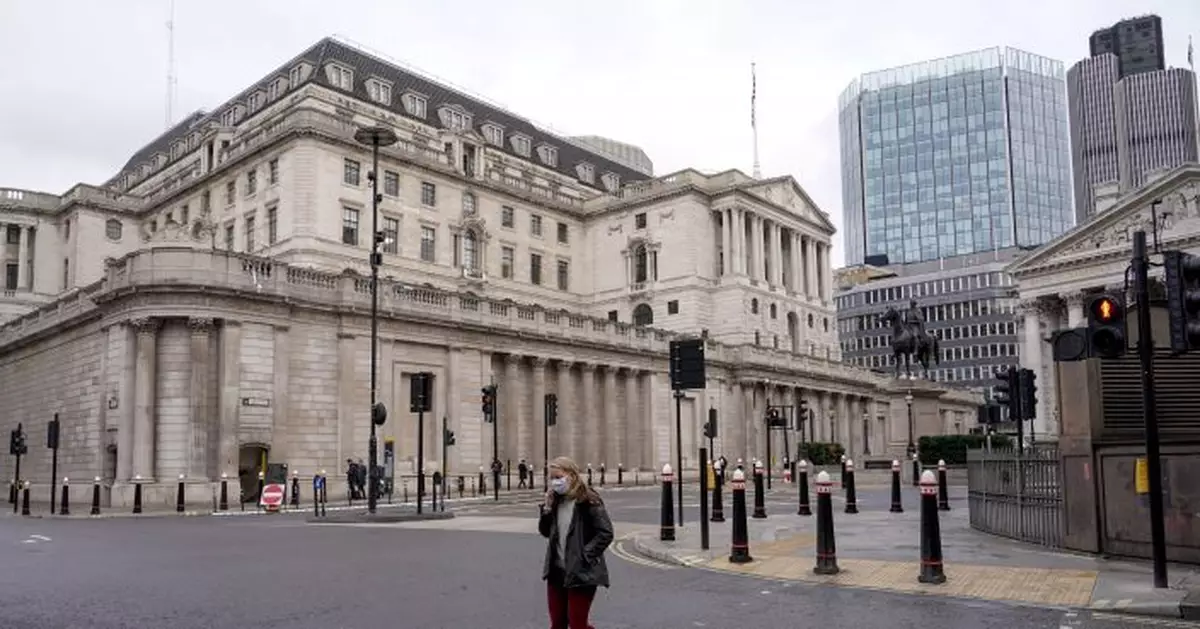With prices rising at the fastest pace in a decade in the run-up to Christmas, households up and down the United Kingdom could do without an increase in their loans and mortgages if the Bank of England decides to raise interest rates Thursday.
Most economists and financial markets think it's more likely than not that the central bank will keep rates unchanged given the huge economic uncertainties surrounding the spread of the omicron variant of the coronavirus. Were it to raise rates, it would be the first central bank within the world’s leading economies to do so since the pandemic began.
With omicron infections in the U.K. tipped to rise exponentially in the coming days, rate-setters are expected to keep the bank’s main interest rate unchanged at the record-low 0.1%, instead of raising it to 0.25%.
The European Central Bank, which sets interest rates for the 19 countries that use the euro currency, also is expected to sound a note of caution when it announces its latest decision soon after the Bank of England. However, the U.S. Federal Reserve decided to speed up its tightening of credit Wednesday as inflation reached a 40-year high in November.
Besides any serious health issues, the spread of omicron could potentially mean hundreds of thousands of people in the U.K. having to self-isolate after testing positive. That's a fair chunk of the British labor force to go idle at a time when people may opt against going out — further checks on an already stalling economic recovery.
Speculation of an interest rate hike swirled Wednesday after U.K. consumer prices rose at their highest level since 2011. The Office of National Statistics found that inflation increased by 5.1% in the year to November, more than double the bank's target of 2%, which in normal times would prompt rate-setters to act.
However, these are not normal times, with many of the price rises due to price distortions and blockages in the supply chain caused by the pandemic.
Ian Stewart, chief economist at Deloitte, noted that earnings lag behind inflation as they did during a previous price surge a decade ago.
“Today’s bout of inflation is more likely to play out as another squeeze on incomes than a runaway wage-price spiral," he said.
Other economists think a modest increase is merited not least because the British job market has weathered the end of a salary subsidy scheme that helped support millions of jobs during the pandemic.
Brian Coulton, chief economist at Fitch Ratings, said there would be more confidence among the rate-setting Monetary Policy Committee about the unemployment outlook and cautioned about the inflationary impact of omicron if shortages of goods and workers lead to price rises.
“We don’t think it will take much to persuade another three members of the MPC to vote for a very modest rate hike tomorrow, particularly as the groundwork has already been laid," he said.


